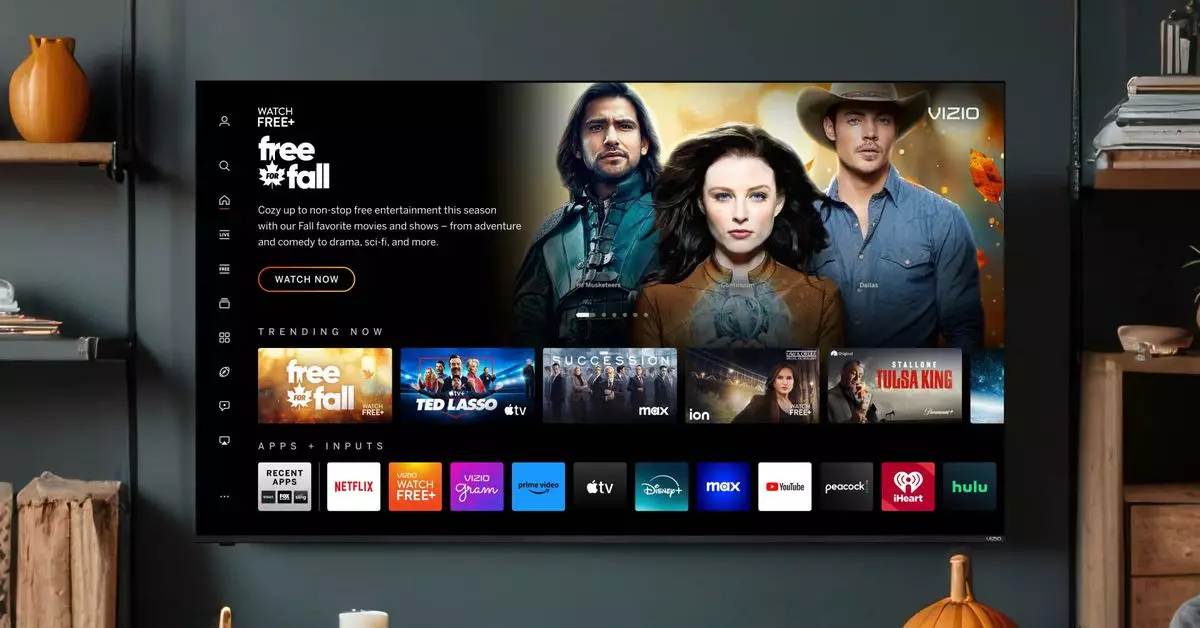In a significant move that could reshape the landscape of retail and entertainment, Walmart has officially completed the acquisition of Vizio for a staggering $2.3 billion. Announced back in February, this transaction is projected to infuse Walmart’s burgeoning advertising sector with valuable data and capabilities. This purchase positions the retail leader not just as a marketplace powerhouse but as a formidable player in the advertising space, complementing its existing strategies and future aspirations.
The Role of Data in Advertising Success
The highlighted objective of this acquisition revolves around Vizio’s advertising and data division, known as Platform Plus. Walmart’s keen interest in leveraging consumer data reflects a broader trend in the industry: the amalgamation of shopping and digital advertising. Utilizing Vizio’s comprehensive consumer insights, Walmart aims to enhance the precision of its ad targeting capabilities across platforms like Disney Plus and Hulu—an evolution that promises more personalized consumer experiences.
Given that Vizio’s ad segment is the primary source of its gross profit, Walmart’s desire to harness this revenue stream underscores the increasing importance of data in contemporary business strategies. This trend could potentially lead to Walmart selling more advertisements through Vizio televisions, possibly even creating an ecosystem where ads directly appear in consumers’ living spaces, blurring the lines between retail and digital content.
However, the acquisition raises red flags regarding consumer privacy. Vizio’s track record with data tracking has been far from spotless. The company faced significant backlash in 2017 after settling a Federal Trade Commission lawsuit for $2.2 million due to accusations of tracking viewer behavior without explicit consent. With growing consumer skepticism towards data privacy, Walmart must navigate these concerns carefully, ensuring that its data-driven strategies do not infringe upon user trust or violate privacy laws.
Facing the Competition
In a rapidly evolving TV market filled with budget-friendly brands, Walmart’s acquisition of Vizio positions the company favorably against competitors like Roku, which has seen remarkable success with its advertising sales. Roku reported $908.2 million in sales in Q3 2024, an impressive feat that highlights the potential for financial gains in this sector. Vizio currently lags in revenue per user, averaging $37.17, compared to Roku’s $41.10. Thus, Walmart’s strategic maneuver not only aims to enhance Vizio’s operational competitiveness but also catalyze innovation within the television advertising realm.
Despite this monumental acquisition, Walmart has confirmed that both it and Vizio will operate as independent entities for the time being. This decision, coupled with Vizio CEO William Wang’s continued leadership, indicates a commitment to maintaining the essence of Vizio while integrating it into Walmart’s extensive network. As Seth Dallaire, Walmart’s Chief Growth Officer, noted, Vizio has adeptly transformed its operations to establish a profitable advertising segment.
Walmart’s acquisition of Vizio represents not just a financial transaction but a strategic alignment poised to harness the power of data in retail and advertising. As the boundaries between these industries continue to blur, the successful integration of their operations could set the stage for new standards in consumer engagement and advertising effectiveness.


Leave a Reply